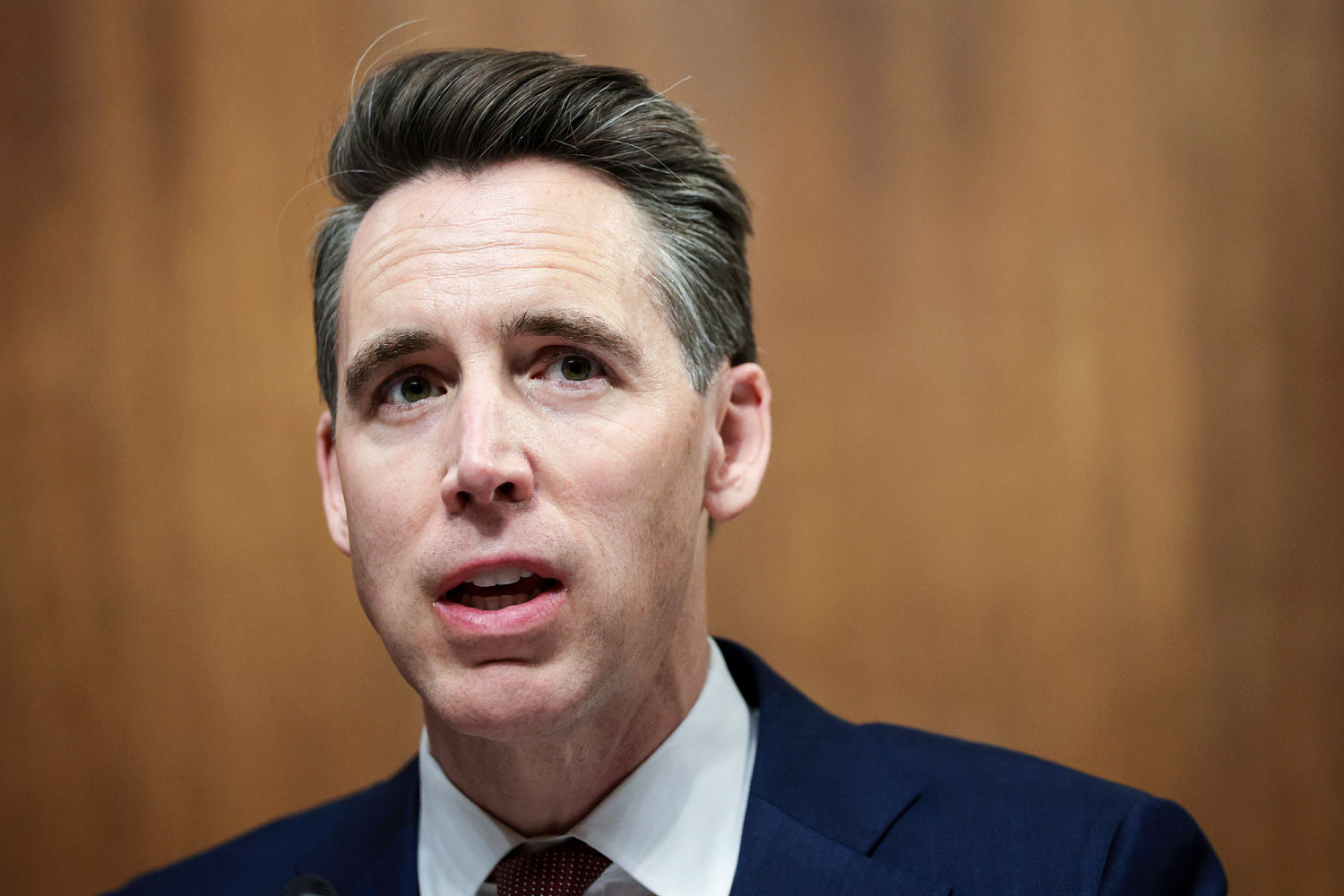Hawley Seeks to Block Key Trump Bill Provision After Voting for It

A Bipartisan Victory for Nuclear Waste Victims Amid Controversial Legislation
In Hazelwood, Missouri, Senator Josh Hawley, a Republican from the state, recently held an event to highlight a less-publicized section of a massive piece of legislation that President Donald Trump signed into law. The bill, which spans nearly 1,000 pages, includes a wide range of provisions on taxes, immigration, and health care. However, Hawley chose to focus on a specific part: an expanded fund for victims of nuclear waste. This issue has been a priority for him for years, and he worked closely with lawmakers across the aisle to ensure it was included in the final bill.
Despite his efforts, Hawley faced criticism over other parts of the legislation, particularly the steep Medicaid cuts. He expressed concerns about these changes but remained committed to ensuring that the provider tax changes, which would limit state reimbursement for Medicaid, do not take effect in Missouri in 2030. His stance highlights the complex challenges Republicans face as they attempt to sell this large-scale bill to the public ahead of the upcoming midterm elections.
“I think that if Republicans don’t come out strong and say we’re going to protect rural hospitals, then, yeah, I think voters aren’t going to like that,” Hawley said during an interview with NBC News. He emphasized his opposition to cutting rural hospitals and stated that his views on this issue have not changed.
Hawley also suggested that he would work with Democrats to address prescription drug pricing, a priority that Trump has emphasized. This collaboration could help offset some of the tax cuts made permanent by the new law. Despite his reservations about the bill, Hawley ultimately decided to support it, choosing to focus on the wins he could secure for his constituents.
Defending his vote for the legislation, which the nonpartisan Congressional Budget Office estimates will cause nearly 12 million people to lose their health care coverage by 2034, Hawley argued that the Radiation Exposure Compensation Act (RECA) and the rural hospital fund included in the bill would expand health care access in Missouri. However, for many hospitals and social safety net administrators in Missouri, the law’s changes bring uncertainty to a community that relies heavily on funding from expanded Medicaid access.
The Missouri Hospital Association estimates that the state will lose hundreds of millions of dollars in funding due to the provider tax changes. Federally qualified health centers, which serve underserved populations, are already facing budget shortfalls and cuts. An administrator at one such center in the rural Missouri Highlands warned that the impacts of the new law could lead to deaths in her community.
This issue is not unique to Missouri. According to an analysis from the Kaiser Family Foundation, hundreds of rural hospitals across the country could close, and many more will lose billions of dollars in funding over the next decade.
From a political standpoint, Republicans will need to defend their policy choices as Democrats begin to attack them in the lead-up to the 2026 congressional elections. Hawley, along with many other GOP lawmakers, secured private assurances from leadership early on and managed to include key priorities in the legislation.
He worked with Senate Majority Leader John Thune to attach RECA to the package. This federal law, which provided financial compensation to individuals who developed certain diseases due to radiation exposure, expired last year. Hawley emphasized that this provision was crucial to his decision to support the bill.
At the event, Hawley was joined by advocates from across the country, including Sherrie Hanna from Prescott, Arizona. Hanna lost her father and husband to cancers linked to nuclear waste in the area. She described the importance of the RECA compensation program and expressed relief that it had been reinstated.
The event also had a bipartisan tone, as Hawley praised former Democratic Rep. Cori Bush, a member of the progressive “squad” in Congress. He acknowledged her contributions and the role she played in bringing attention to the issue.
Rep. Wesley Bell, a Democrat from Missouri, also supported the provision despite voting against the overall bill. He recognized the significance of compensating those affected by nuclear waste while expressing concerns about other aspects of the legislation.
Some advocates, like Navajo Nation President Buu Nygren, acknowledged the complexity of the situation. While praising Hawley’s efforts to secure compensation for indigenous communities, Nygren also highlighted the negative consequences of the bill on renewable energy and health care coverage for the Navajo Nation.
Post a Comment for "Hawley Seeks to Block Key Trump Bill Provision After Voting for It"
Post a Comment